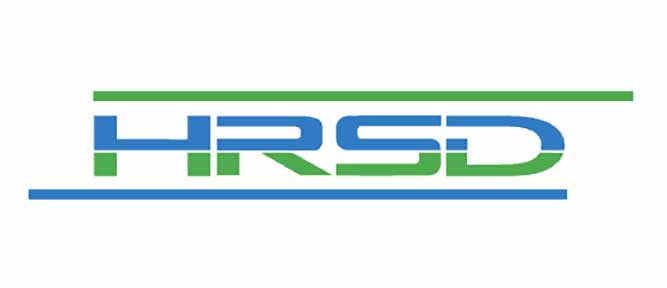By Stefanie Jackson – Exmore’s Monday night town council meeting had the town hall packed with citizens when the Hampton Roads Sanitation District’s general manager, Ted Henefin, answered council members’ questions before they decided to follow three other Northampton towns in becoming part of HRSD.
“I don’t envy the position you’re in,” Spencer Murray, the chairman of Northampton’s board of supervisors, told the town council. “The bottom line is, we have no time.”
When Exmore is a member of HRSD, it can turn over its wastewater collection and treatment system for the sanitation district to upgrade, operate, and maintain. HRSD would also set prices and bill customers.
Exmore’s wastewater treatment plant would be shut down. All the sewage from Exmore and several other Northampton and Accomack towns would be carried by an HRSD force main to the Onancock wastewater treatment plant that has a 750,000-gallon daily capacity.
But Exmore wants to expand its sewer system so it can offer service to the entire town, up to 900 households and businesses. It is currently limited to serving about 350 customers due to a Virginia Department of Health consent order.
HRSD pays for sewer system upgrades but not expansions. Exmore will not qualify for state grants or no-interest loans to expand the system if the town has an operating agreement with HRSD, a political subdivision of the Commonwealth of Virginia.
Exmore had the option of doing business with a private company, Aqua, and funding the town’s sewer project with a $6 million loan from Virginia’s Department of Environmental Quality (DEQ), but the town was recently disqualified for the loan and was asked to re-apply next summer.
The town council is also concerned about how much customers will pay every month for sewer service.
HRSD customers share the cost of every sewer system repair and upgrade in every locality in the district, and HRSD’s rates have doubled within the last eight years, Henefin confirmed.
HRSD’s current monthly rates are $5.60 for collection and $7.83 for treatment of every 1,000 gallons of water used, as indicated by a water meter. That combined rate of $13.43 is set to double again within 10 years.
In Exmore, the average sewer customer uses about 3,000 gallons of water per month.
Exmore customers would also share the cost of building out the sewage collection system, and town officials have estimated that in 10 years, the average monthly sewer bill could total $150 or more with HRSD in control.
Exmore residents would join HRSD’s other 480,000 customers in funding about $1.9 billion HRSD will spend on its sewer systems over the next 20 years.
Councilman G.W. Adkins said, “I want my people to have sewage, but I don’t want to have to pay somebody else’s project.”
“That’s your prerogative,” Henefin said. “We’re not pushing this on anyone.”
He explained that cost-sharing has benefited localities like Surry, Va., which joined HRSD in 2017.
HRSD took over Surry’s failing wastewater treatment plant and “the day we took it over, we had an army of folks in there working to renegotiate the consent order they had with DEQ. We now are on the hook for that,” Henefin said.
“We’ve renegotiated the terms twice already to make sure that, one, we’re making improvements so the plant operates better in its current condition and, two, we have a long-range plan to eliminate that plant, and that’s all on us … our entire customer base.
“The 350 Surry customers in the town of Surry would not have been able to afford to do that on their own. They would have been facing a two to three million dollar bill to replace their treatment plant, spread across 350 people, as opposed to us spreading that cost over our 480,000 customers.”
“Which is exactly the predicament we’re in, is why we wanted to expand and then hook into either a public-private partnership or your pipe. That’s been our goal the whole time,” said Exmore Town Manager Robert Duer.
Another benefit of HRSD is it would take responsibility for future sewer system upgrades, Murray added.
Henefin reminded the town council that joining the Hampton Roads Sanitation District does not obligate the town to turn over either its sewage collection system or treatment plant to HRSD.
Exmore’s decision to “become part of the territory” of HRSD simply “keeps doors open for you,” he said.
Councilman Chase Sturgis asked if either Exmore or HRSD could back out of any operating agreement they may enter.
Henefin said HRSD could not back out “without the express, written consent of the locality.”
Exmore could back out of the agreement and have its assets returned “with the exception of any investment HRSD has made in the system.”
But one concerned citizen, Ken Dufty, objected. “You never, ever give up control of your public utilities,” he told the council. “We can’t vote out HRSD. We can vote you out.”
The town council passed the resolution requesting to join HRSD in a 4-2 vote, with Adkins and Councilman Thomas Lewis opposed.
But a public-private partnership between Exmore and Aqua or another company is still a possibility.
The town council also passed the Public-Private Education Facilities and Infrastructure Act, which authorizes Exmore to create public-private partnerships that provide the town’s needs “in a timely or cost-effective fashion.”
Duer said the act “will allow us to accept a bid from Aqua, so then we can run the numbers.”
He hoped to hire an engineer within 10 days to prepare a PER (preliminary engineering report) for the sewer project, which DEQ will require when Exmore re-applies for funding in 2020.



